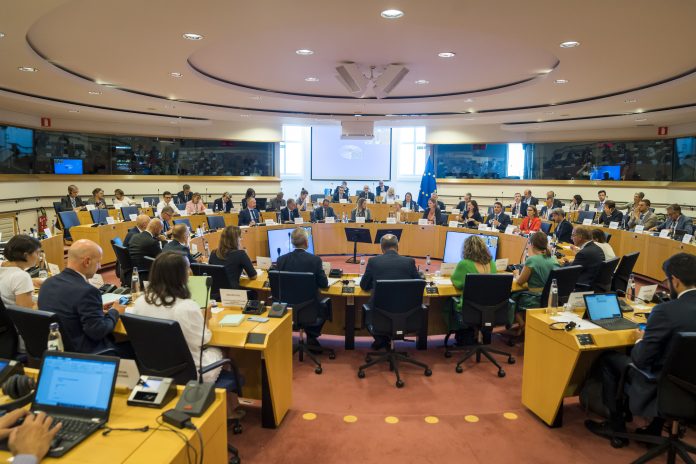Prompted by the President’s 14-point reform plan addressing corruption allegations, MEPs adopted a series of proposals to revise Parliament’s internal rules.
The draft report endorsed by the Constitutional Affairs Committee on Thursday (15 votes for, 10 against, and one abstention) puts forward a reinforced ban on all MEP activities that would constitute lobbying, regardless of whether undertaken as a profession or not. It would also strengthen rules on penalties, including doubling the maximum forfeiture of an MEP’s allowance to 60 days and publishing decisions online for longer.
Publication of meetings and declarations of input
The draft new rules stipulate that all meetings of MEPs (or their assistants, if acting on their behalf) with interest representatives or public authorities of third countries must be published online. Special provisions are made for meetings where there are compelling reasons for confidentiality. It would also be compulsory for rapporteurs to list who gave them input for their work in an annex attached to their report or opinion.
Additionally, MEPs would not be allowed to engage with former MEPs whose mandate ended less than 6 months earlier, in ways that could influence policy or legislation.
Conflicts of interest
MEPs improved the existing definition of conflicts of interest by covering also an MEP’s family, emotional life, economic interest or any private interest. MEPs would also have to “make every reasonable effort” to detect conflicts and endeavour to resolve them. If not possible, a MEP declaration stating this would be published.
Before taking up an elected position (e.g. Vice-President or Committee Chair), an MEP would need to submit a specific declaration. It would be up to the respective body to decide whether it prevents the MEP from exercising their mandate in the public interest. Complementary rules would apply for rapporteurs, shadow rapporteurs, delegation members and members of negotiating teams.
Declarations of private interest, assets, and gifts
Thresholds would be lowered so that MEPs would have to declare all remunerated activities, “regular” or “occasional”, if their overall side income exceeds Є5,000 annually. They would continue to have to declare any direct or indirect interests and membership of boards or committees. Checks for these declarations would become more effective through specific deadlines and penalties.
The draft report also includes an obligation to declare assets and liabilities at the beginning and end of every term of office, accessible to the authorities.
Rules are to be clarified so that MEPs would not be allowed to receive any gifts in their personal capacity if they exceed Є150 EUR in value, and any gifts over that value that they get while representing Parliament should be handed to the President. Declarations would have to be made for an MEP’s attendance at any event where their costs are paid by third parties.
Reforming the Advisory Committee
The competent Advisory Committee is reinforced to monitor compliance with the Code of Conduct proactively or when an alleged breach is signalled. Its recommendations can include penalties to be imposed by the President. In case of systematic, severe or repetitive failures to comply with disclosure obligations, the President would consult the Advisory Committee. Its composition would be revised to comprise eight members: five MEPs appointed by the President based on experience and political/gender balance, plus three external experts with personal integrity and experience in professional ethics, without voting rights.
Unofficial groupings
The package also includes provisions to better regulate unofficial groupings, as well as intergroups. It introduces a public register of declarations of support “in cash or in kind”, a ban on the use of Parliament’s name and logo, and a ban on using Parliament’s facilities in case rules are breached. Unofficial groupings would be prohibited from organising events outside the EU in parallel to an official delegation, and groupings related to third countries for which a standing interparliamentary delegation exists are banned from using Parliament resources or political group support.
The draft report is set to be voted on during the 11 – 14 September plenary session in Strasbourg.

